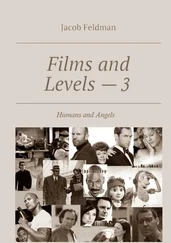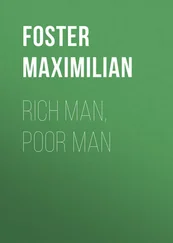Now that I was working in his former department, my meetings with Emmett had to be kept secret. Emmett was in so many ways persona non grata at the organization and no one could be allowed to realize we knew each other. We stopped meeting at his house, and instead met at a series of cheap bars where he felt confident no one would recognize him. I wondered how he knew so many cheap bars; we met at a different one each time. Soon the dynamic of our meetings had shifted, Emmett coaching me on every aspect of the organization, my every question focused on how to get closer to my target. I realized that Emmett had once played the organization like a finely tuned device. He carefully explained how each position functioned, how each employee operated, what they wanted and how to get on their good side. I realized something I found momentarily shocking. Emmett had been excommunicated at least ten years ago, but everyone else, or at least everyone near the top, still had their jobs. You only need one good scapegoat to make a problem go away.
My job consisted of sorting through everything that had been written about the various divisions, summarizing them in a series of cross-filed reports. A pre-propaganda job, since my reports would later be used to strategize what spin might be required for routine publicity, as well as, more importantly, for new initiatives. The only good thing about the job was that my target personally read each of the reports I produced, and if he had any questions he would phone me to ask about them. Since he almost always had questions, I would speak with him on the phone once, twice, sometimes three times a week. It seemed clear to me that if this were to continue, I would soon become a regular presence in his life, and there would be no question that at some future moment he would let down his guard. There remained the slight dilemma that most of our conversations took place over the phone, and I rarely met him in person. But I reasoned it would only take one significant meeting for me to complete my goal, just ten minutes alone with him, and that certainly could be arranged over time. I kept the piano wire with me at all times.
I would record our phone conversations, listen to them at home, analyzing what changes I could make in my approach to further win his trust, listening again and again, some of them strangely more entertaining than others:
— So there’s a difference in how the genetics are perceived when one looks at the north versus the south?
— I don’t think you’d need my report to tell you that.
— How do you mean?
— Just look at an electoral map. Or get on a bus.
— But how does this relate specifically to food? What’s the takeaway?
— Assumed it went without saying. In the south, it’s of course: what we don’t know won’t hurt us. In the north, they want science, hard facts.
— How do you mean: what we don’t know? Everyone wants to know things?
— All the southern items lead with an anecdote, usually something local and friendly, and bury facts that might be distressing in the middle of the piece. The reassuring lead colours the rest. Ostrich-style. They’re going to accept whatever we give them.
It frequently occurred to me that I was doing some small amount of harm in the world. But I didn’t plan to be doing it for long, just long enough to get him alone, and if I was not compiling these reports they could easily hire someone else. I tried to keep the accuracy of my reports well within the bounds of familiar cliché, ignoring any information that might be counter-intuitive and therefore useful. Within the boundaries of my thinking at the time, this served two general ends. If I provided them with only what they already knew, I could comfort myself in the thought that, in my job, the basic values of which I despised, I was doing neither harm nor good, since I was not bringing anything new or unexpected into the system. More importantly, it was unlikely anyone within the organization would ever question my findings, since they all seemed so intuitively obvious and reasonable. I was keeping my head low, would make no waves until the final tsunami that would end it all.
1.
They were a handful of shares away from a majority, had met with the board and charmed them (a board I had always assumed to be safely in my pocket), every piece of evidence pointing to the fact that, in a short number of days, I would be the unemployed laughingstock of the international business press. When you are fighting for your job, your life, for everything, occasionally you might do something you later regret. I am sharing this now, my momentary lapse of judgment, because it’s a dirty trick that works, and will always work, no matter how many people know about it or attempt to make use of it, and such things must be out in the open. We already knew an inheritance was involved, an inheritance that could be lost if the deal went sour, and it seemed reasonable that other family members might have also had their eyes on this very large sum, and that we could provide them with lawyers who could assist in their desire to contest the will. We knew nothing about the contents of the will itself or whether any other family members had legitimate claims. We only wanted to cause trouble, slow things down, make their lives as miserable as they were making ours.
Tracking down the family was the most difficult part. At first it seemed all was lost, that our second-in-command adversary had the only legitimate claim, was the only living relative. I’m not sure if it was Emmett or I who first realized that a legitimate claim was unnecessary. Any kind of claim would easily serve our needs. The question was how to make it seem, at least on the surface, plausible. We hired a firm to run computer simulations, looking at dozens of individuals who grew up in the same region as the deceased, with similar backgrounds and family connections. We came up with a list of criteria — age, regional proclivity, net worth, family tree connectivity — and used this list to generate an array of possible ‘long lost relatives.’ Emmett then spent a week travelling, speaking to each candidate in person, feeling them out to see if they were good actors and how much it would cost to convince them to take a long, hard run at it. This led to three promising contenders, and we assembled a team of top lawyers for each one. Emmett reasoned that the publicity we would generate in the battle over the inheritance might draw some real family members out of the woodwork, and in this we were doing them a genuine service.
As the lawyers were preparing three separate but interrelated strategies to contest the will, it wasn’t so much that time was running out, more like all clocks were on fire, since the attack, the plan to rip our company to shreds, was also intensifying. At night I would lie in bed, think we were doing everything right, but why wasn’t it going fast enough. They were going to beat us, win the race. I imagined what it would be like to lose everything. What I would do with my life if I was no longer running the organization. Consulting held no allure; to the contrary, it seemed like the purest form of hell. I was a man who needed to be in charge: of his world, his universe, of everything. We required another edge and, once again, it was Emmett who had the brainstorm.
Even though C had refused to meet with us, he still flinched — a painful, severe reaction he was unable to conceal — every time Emmett laid into him during a bargaining session. We believed there must be some way we could make use of him as a weak link. We’d already learned he was their main number cruncher and, in the process of having him followed, also realized he was visiting his doctor several times a week. His medical records were not difficult to obtain, a bad heart exacerbated by the stress of the negotiations. We began to strategize on how to increase his stress to the point he would be forced to drop out. We thought threatening phone calls, at all times of day and night, would be the simplest bet. We then worried they would be too easy to trace back to us, since who else had a motive to threaten an innocent, benign accountant whose only transgression in life was visiting his doctor four or five times a week. However, since millions of heart attacks happen in the world every day, we saw no reason we couldn’t find some way to take him to the brink.
Читать дальше












